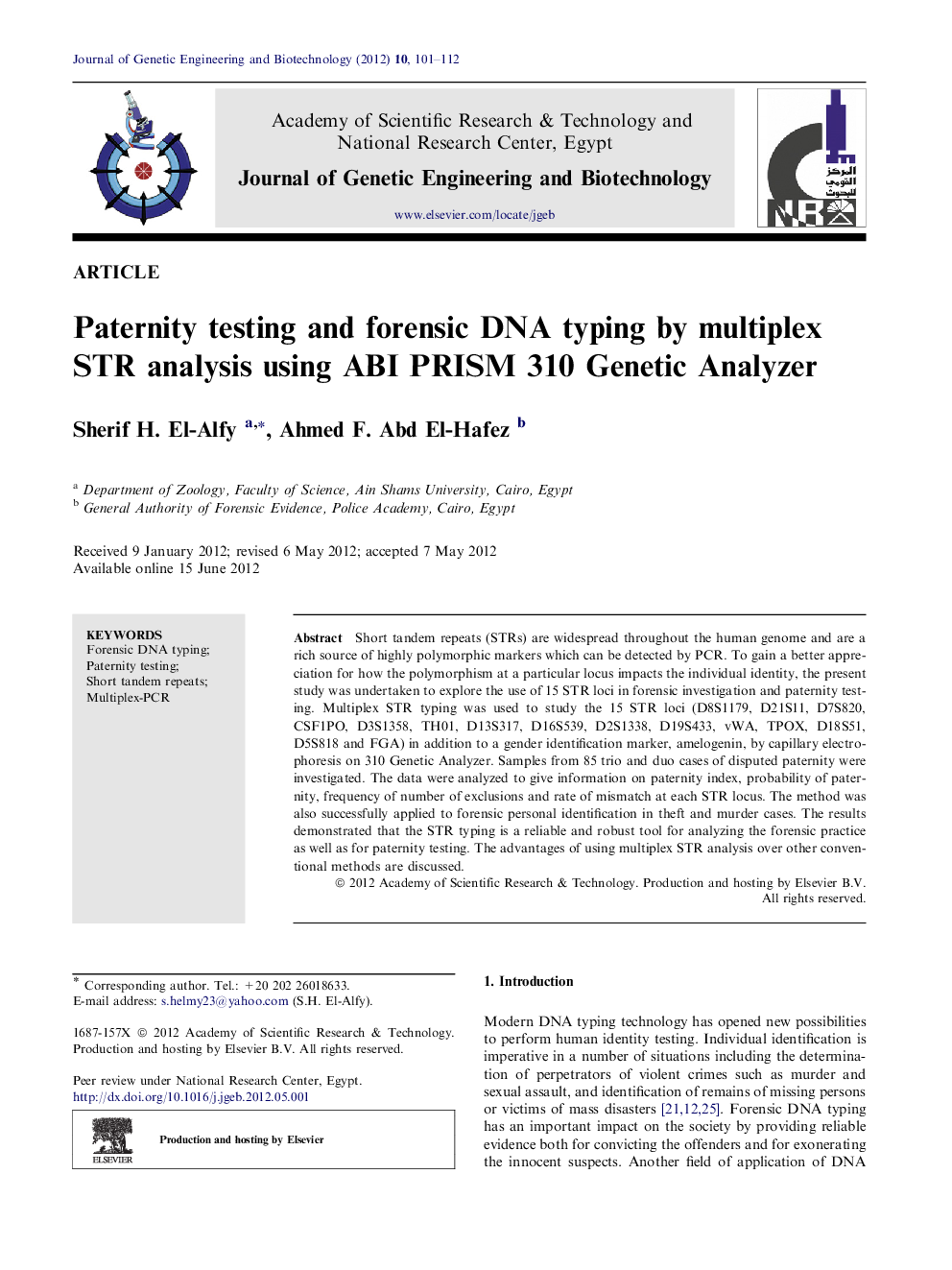| Article ID | Journal | Published Year | Pages | File Type |
|---|---|---|---|---|
| 2087978 | Journal of Genetic Engineering and Biotechnology | 2012 | 12 Pages |
Short tandem repeats (STRs) are widespread throughout the human genome and are a rich source of highly polymorphic markers which can be detected by PCR. To gain a better appreciation for how the polymorphism at a particular locus impacts the individual identity, the present study was undertaken to explore the use of 15 STR loci in forensic investigation and paternity testing. Multiplex STR typing was used to study the 15 STR loci (D8S1179, D21S11, D7S820, CSF1PO, D3S1358, TH01, D13S317, D16S539, D2S1338, D19S433, vWA, TPOX, D18S51, D5S818 and FGA) in addition to a gender identification marker, amelogenin, by capillary electrophoresis on 310 Genetic Analyzer. Samples from 85 trio and duo cases of disputed paternity were investigated. The data were analyzed to give information on paternity index, probability of paternity, frequency of number of exclusions and rate of mismatch at each STR locus. The method was also successfully applied to forensic personal identification in theft and murder cases. The results demonstrated that the STR typing is a reliable and robust tool for analyzing the forensic practice as well as for paternity testing. The advantages of using multiplex STR analysis over other conventional methods are discussed.
